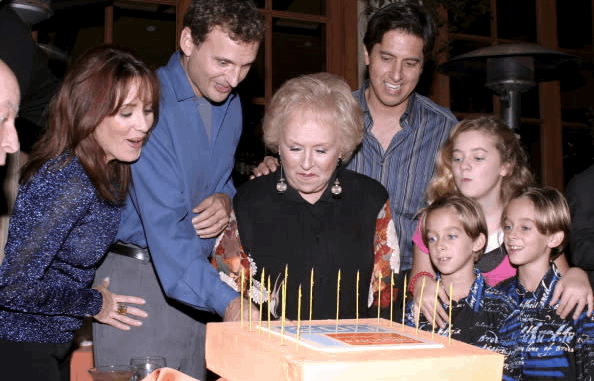
When Everybody Loves Raymond debuted in 1996, it seemed fresh, funny, and utterly original. The premise was simple yet brilliant: a sportswriter dealing with the chaos of family life, nosy parents across the street, and the ever-relatable tension between spouses. The show quickly became a ratings juggernaut, winning 15 Emmys and cementing its place in television history.
But for decades now, a shadow has lingered over its legacy: was Everybody Loves Raymond truly original, or did it borrow — some say steal — its best ideas from other sources?
Let’s dive into the plagiarism rumors that just won’t die.
1. The Italian Connection: Too Close for Comfort?
The most persistent rumor involves an Italian sitcom called Un Giorno Qualunque (“An Ordinary Day”), which aired briefly in the early ‘90s. Though it never reached American audiences, clips of the show began circulating online years later, and fans were shocked by the similarities.
-
A bumbling husband constantly arguing with his sharp-tongued wife.
-
Meddling parents who lived across the street.
-
A brother jealous of the protagonist’s success.
Sound familiar?
Conspiracy theorists argue that CBS executives or writers must have seen tapes of the Italian show and repackaged it for American audiences. Though never proven, the rumor spread like wildfire among sitcom fan forums.
One online commentator even claimed:
“If you put the scripts side by side, some jokes are practically identical. There’s no way that’s coincidence.”
2. Stand-Up Material Gone Too Far
Ray Romano, the face of Everybody Loves Raymond, built much of his comedy on stand-up routines about marriage and parenting. But critics argue that Romano’s material wasn’t as original as it seemed.
Comedians from the ‘80s and ‘90s have accused him of lifting themes, punchlines, and even specific phrasing from their acts. While none ever took legal action, whispers of “joke stealing” haunted Romano for years.
Could Raymond simply have been an extended sitcom version of borrowed stand-up?
3. Writers Cry Foul
Perhaps the most explosive allegations come from within Hollywood itself. A little-known sitcom writer named Alan Devereux claimed in a 2008 tell-all book that he had pitched a family-centered sitcom to CBS in 1994.
His pitch? A hapless dad trying to juggle kids, in-laws, and a competitive sibling. According to Devereux, CBS passed on the project — only to greenlight Raymond two years later.
In his book, he wrote:
“I sat in that office and described the exact same dynamic. They told me it wasn’t marketable. Then suddenly, Ray Romano shows up with the same blueprint. You tell me that’s coincidence?”
CBS never responded directly, but the timing continues to raise eyebrows.
4. International Accusations
It’s not just Italy. In the late 2000s, a Brazilian sitcom called Todo Mundo Ama Raimundo accused CBS of borrowing its core concept. Though Raimundo aired years after Raymond, its producers argued their idea was developed in the early ‘90s — only to be mysteriously “shelved” after meetings with U.S. distributors.
While most dismissed this as opportunism, it fueled a narrative: that Raymond was less of a groundbreaking sitcom and more of a patchwork quilt of recycled ideas.
5. The Spin-Off Irony
Adding fuel to the fire, when CBS sold Everybody Loves Raymond for international remakes, some of those remakes accused the American show of ripping them off.
-
In Russia, Voroniny became one of the longest-running sitcoms ever. Russian producers cheekily suggested that maybe Romano had “borrowed” from them.
-
In Israel, creators of Mishpaha Zeh Kol (“Family Is Everything”) joked publicly that the Americans were “ahead of them in stealing.”
What was meant to be light-hearted humor only kept the plagiarism rumors alive.
6. Fans as Detectives
In the age of Reddit and YouTube, fans have become amateur investigators. Compilation videos comparing Raymond episodes to obscure sitcoms, plays, and stand-up bits rack up millions of views.
One viral clip compared a Raymond dinner-table argument to a scene from a 1988 stage play by Neil Simon — almost line for line. Was it homage, coincidence, or theft?
The debate rages on.
7. CBS’s Silence
Perhaps the strangest part of the story is CBS’s refusal to address the accusations. Network executives have repeatedly brushed off questions, simply crediting Romano and Phil Rosenthal as the original creative forces.
But in Hollywood, silence often fuels speculation. If there’s nothing to hide, why not confront the rumors head-on?
8. The Legacy Question
So, did Everybody Loves Raymond really steal its best ideas? The truth may never be known. Sitcoms, after all, thrive on universal themes: marriage, family, in-laws, and sibling rivalry. Maybe the similarities are inevitable.
Yet the persistence of these rumors suggests something more. For many fans, the question isn’t whether Raymond was funny (it undeniably was), but whether its laughs were built on borrowed bones.
Conclusion: A Sitcom Tainted by Whispers
Everybody Loves Raymond remains beloved, but its legacy is complicated. For every fan who insists it was a masterpiece of originality, there’s another who swears it was a patchwork of stolen jokes and recycled tropes.
And perhaps that’s the real tragedy: a sitcom meant to celebrate family unity now lives under a cloud of suspicion and division.
Because in the end, maybe everybody loved Raymond — but not everybody believed in him.
